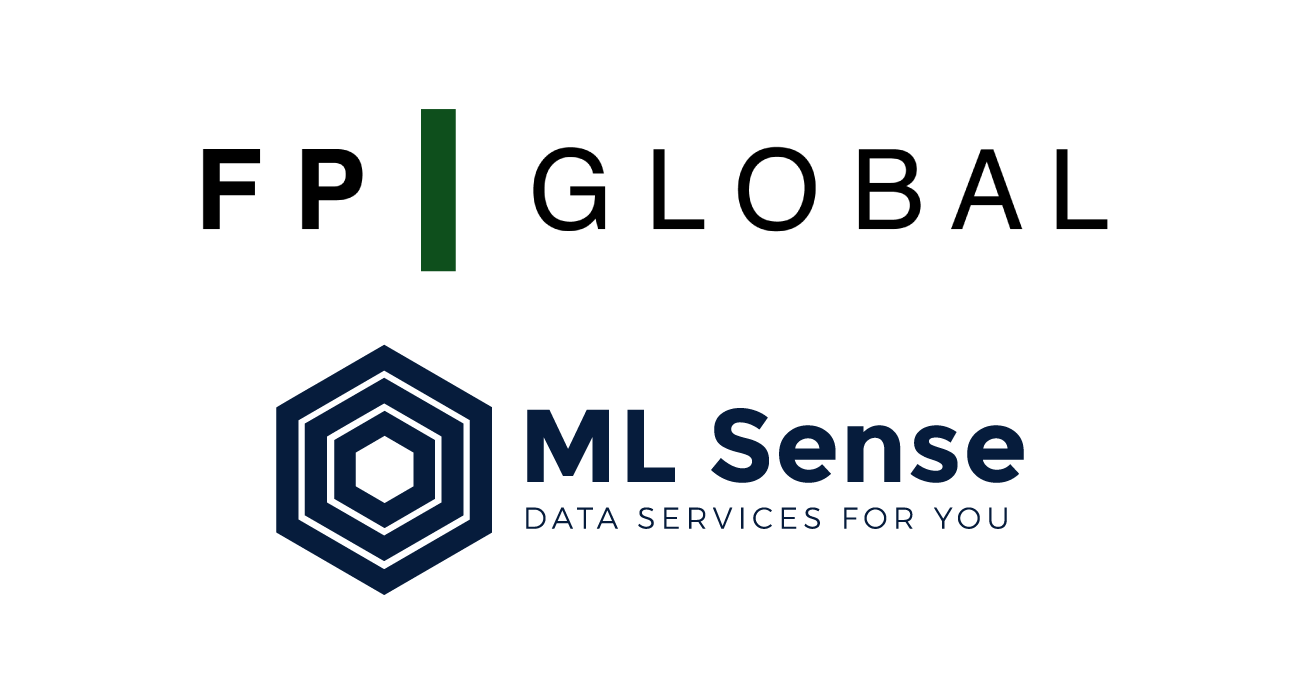Latest Insights
May 15, 2019
In this exclusive interview by Funds Partnership Asia with Iesan Tsai, Head of Asia at Hermes GPE, we discover how she landed up in Private Equity, why she moved to Singapore, and what a day-in-her-life looks like! Discover why having kids has actually made her more focused and efficient in her job, and her thoughts on what soft skills she looks out for when hiring!
1. What is your career trajectory in a nutshell?
I was very fortunate that the moment I graduated, I always knew I wanted to work in Private Equity.
At that time (2005), Private Equity was still quite a niche industry and did not have the “reputation” or “prestige” that it is associated with today. The job description was something along the lines of being “in the finance industry, but with international components where you get to interact with companies”.
Nonetheless, I somehow had the mentality to do things ahead of the curve, to forge my own path instead of following the crowd. One big motivation for me was that chance to work with smart people. I was fortunate to have entered the industry back in 2005 first in the U.S. and have stayed in it or in some form of finance ever since.
Thankfully, I had a bit of instinct in terms of understanding what I enjoy, and that definitely meant the process and journey of getting to where I am today rather than simply the end result. It has been a journey of learning, and staying true to my interests.
My big career break in Asia came in 2012 when I moved to Singapore with my husband. At that time, he was working in China while I was based in San Francisco for investment banking. While it was long distance, we always got off work at the same time (6PM in China for him which was the equivalent of 2AM in West Coast of the US)!
At an opportune moment, he had a chance to transfer to Singapore. I had no job prior to arriving but once again I decided to follow my instinct – and it paid off. Within a month, I found a role at Hermes GPE and it has been quite a ride since then.
There were very few people doing Asian co-investments at that time, but I saw it as a great opportunity to be proactive instead of reactive. This was especially since the Singapore finance industry was booming at that time and allowed one to be very entrepreneurial. If you are in a more established firm, you may be limited in terms of the scale of changes you can implement. However, since the Asian market was in its infancy at that time, I had the chance to help develop the Hermes GPE brand in Singapore from scratch – everything from sourcing to deployment strategy.
They have experienced rapid growth in the last few years, and now I lead their funds across the Asia Pacific region, including China, Southeast Asia, India, Australia, Korea and Japan
2. Did your parents have a say on your career choice?
My parents are Taiwanese and are very traditional and pragmatic when it comes to career choices. They are from a different generation and they will only tell you one thing which is largely shaped by the socio-economic circumstances at that time. Obviously, since Private Equity was in its early stages, they had no idea what this whole industry was about.
This is the reason why I believe strongly that children should not just listen to their parents’ advice blindly. Parents can only loosely guide their children based on the life lessons they have learnt, but not dictate their choices.
If I had followed what they truly wanted, I would have become a doctor instead, and I definitely wouldn’t have been as happy or fulfilled!
3. What skills enabled you to enter the industry?
Fortunately, my good educational background did put me in good standing. That said, you also need to develop your own network, which has opened up a lot of doors for me. While I did not necessarily possess all the hard skills yet when I entered the industry in 2005, you just need the right attitude and mentality to make an impact. You can only teach people hard skills but you cannot teach attitude.
It is easy to be transactional, but this is a role that is highly relational and client-facing. And that is one reason why women are very well-suited to this role, which includes developing connections, being helpful and going the extra mile.
4. What are some challenges that you face balancing work and being a mother?
One thing is that I made sure is that whatever I am doing, I need to like it enough so that if I were to have kids and have a family, I would be happy to go return to it afterwards.
People tend to wind down on their careers just before they start to have kids – but it was actually the opposite for me. In fact, I stepped up on the gas pedal more, because I was always excited to go back to where I left off!
When I was pregnant with my first child, I was still an Associate. The way I managed it was initiating a conversation with my manager, and that is something I would highly recommend. By being proactive about it, I let him know that during that period, I would be just as committed to my job and that it would not affect my performance.
I genuinely think there is no conflict to being committed to family and your job! What I like about being a working mother is the fact that I can inspire them that it’s entirely possible to do both.
Since my kids are still relatively young (ages one and five), their needs are definitely more physical and actually more simple at this stage – feed them, change their nappy and they are happy. It is only when they are older that more emotional support and quality time is needed – and that would be a different challenge altogether. Generally, I want them to be independent so I don’t need to be with them every step of the way.
Having extended family around would have been a great support, but since I did not have any based in Singapore, so it was crucial to link up with reliable help – be it in the form of a childcare service or domestic help. Furthermore, I do travel quite a lot for my work, so having people who are trustworthy is important.
One good thing is that I have a very supportive husband who has always been encouraging me to pursue my career.
We are mutually supportive and we work as a team to create win-win situations, and that might mean taking turns to take up career opportunities, so that family is still a priority.
Definitely, behind every successful man there’s a successful woman. As long as you both are aligned with what you want to achieve, it can definitely work!
5. What is a day-in-your-life as Head of Asia? Did you have to be very disciplined about your schedule?
A typical day includes a lot of external meetings with companies and clients. Every day, you can be in discussion with something very different, across all industries – consumer, advertising, or a tech company of different sizes.
Apart from that, I would mostly be at my desktop or at internal meetings. These could include due diligence, reading up, writing memorandums, and number-crunching and managing teams.
My goal is to always try to at least get home for dinner to eat quickly and then spend an hour with my kids by reading them a story before they go to bed. Once they’re asleep, I’m back on the computer or on the phone for work. Being involved at a regional and global level means the frequent late-night conference calls when speaking with our UK Headquarters. During the weekends, I spend quality time with my children but once they are napping in the afternoon, I try to get some work done as well in the pockets of time.
Ironically, having kids actually made me a lot more efficient and focused! If I am going to maintain a career and spend time away from them during the day, I should be effective at and devoted to what I am doing.
Moreover, I would say that kids are a very good distractor when it is necessary to give your brain a break. It is almost impossible for you to be multi-tasking when with them or to check your phone and email. Kids always live in the moment, and it forces you to be very present.
6. When you first entered the fund industry earlier on – was there any prejudices or obstacles you had to overcome as a woman? Are there any advantages in terms of being a woman compared to a man in this industry?
When I was more junior in my career, there were definitely more disadvantages. For example, you can deliver a message the exact same way a male can, but it would be interpreted negatively. Undeniably, it was a challenge, but that is where you have to persist and know your value. At a more senior level, the women that succeed oftentimes are based on actual results. On the other hand, sometimes men are promoted based just on potential – leadership, vision, packaging, style, eloquence, rather than actual track record.
However, there are plenty of upsides in hiring women – they naturally have higher EQ, empathy, and generally tend to be more conservative in projecting their rate of returns, so this creates a sense of trustworthiness and consistency!
7. Do you have any tips on how women in leadership can better work with male colleagues?
My advice is then when you work with men, try to make statements based on facts rather than emotions. When you disagree, you can do so in various stylistic ways. Try to be constructive and ask questions, as opposed to telling them authoritatively.
Besides working across genders, it is important to manage across different generations as well. For example, millennials, which will make up the vast majority of the workforce, prefer a more collaborative environment that is not based on hierarchy. You cannot just order them around; you have to build consensus. On the other hand, the needs of Generation X (those who have worked in the same company for 20 years) need to be met as well.
The other thing with male colleagues is about earning their respect. Getting them to carry out tasks is not just because you have a title, but more a coaching process. It is more about showing them that you are able to do the dirty work, be their team member, and exemplifying that you are able to do both the technical and soft skills portion.
It is about showing that you that it is feasible to accomplish it, but that is why you are directing them to the same.
8. What’s the most fulfilling thing about being in this role?
I think it is a fantastic feeling when you have helped your client, partner, or portfolio company achieve their goals. When you have created a win-win situation where you help a company in their growth plan, it can be very satisfying. It really makes me happy seeing companies take flight and knowing how we played an integral role in that.
9. Would it take a certain personality to succeed in PE? What types of soft skills does one need to enter PE?
1. Methodical: Chasing deals does not just mean aggressively hunting them down, as we understand it in the male-oriented context. It is also about being strategic and meticulous – for example, asking questions such as what is the best way I can map this landscape? Who are the managers I want to partner with?).
1. Patient and highly relational: You can be as aggressive all you want, but that is not going to get you anywhere, especially in Asia – or Singapore – as it is not as transactional. Relationships develop over time. It is very important to be helpful to a connector, or manager even if you might not get anything in return. It is critical to be able to network and connect with many different types of people out of your comfort zone.
2. Team-oriented: It is critical to be able to see the big picture instead of self-preservation and coming up with win-win situations with your teammates. You definitely need very high EQ to see the other side and this will sustain you in the long-term and can make-or-break you.
3. Entrepreneurial quality: You have to be a self-starter, someone who does not need to be given parameters, but just general guidelines and is able to hit the ground running.
10. What is the future of the funds industry in Asia?
I highly recommend mid-career switchers to think out of the box and be open to being more mobile geographically.
Moving to another country has been one of the best ways that I have gained new experiences or get out of my comfort zone.
Furthermore, technology representation is an increasing proportion of deal volume. Even for the more mature sectors of PE, tech deals amount to nearly half. Also, Venture Capital (VC) will likely to have increasing demand relative to PE in the near future.
If one can excel and truly show mastery in say 2 to 3 skillsets and layer this one with strong interpersonal skills, one can be a in the top percentile of the private equity and funds management industry. The industry is undergoing a lot of rapid change and some of the past ways of doing business will become obsolete. Try to think flexibly and ways in which you can bring innovation into your workplace – then roll-up your sleeves to put those ideas into action!
If you’re interested to find out more about opportunities at Hermes GPE or have a desire to enter Private Equity, do follow Funds Partnership Asia or send over your enquiries to ayyaz@fundspartnership.com
Share This Article
Articles You May Like















